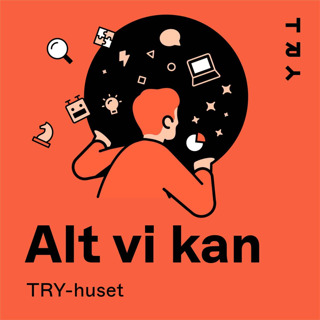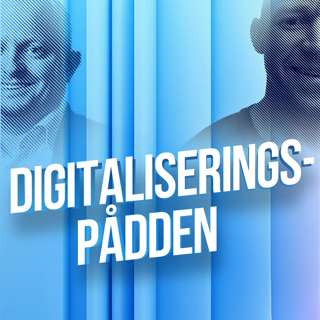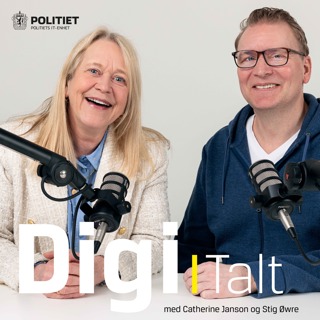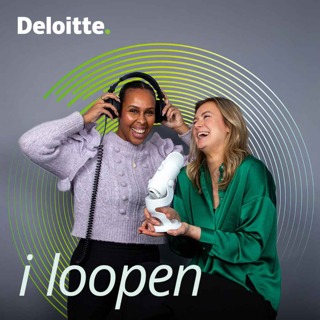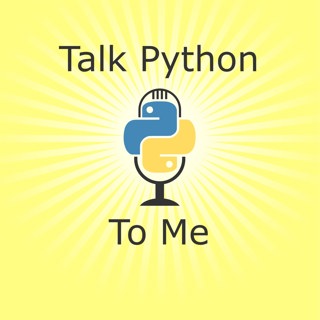
#498: Algorithms for high performance terminal apps
In this episode, we welcome back Will McGugan, the creator of the wildly popular Rich library and founder of Textualize. We'll dive into Will's latest article on "Algorithms for High Performance Terminal Apps" and explore how he's quietly revolutionizing what's possible in the terminal, from smooth animations and dynamic widgets to full-on TUI (or should we say GUI?) frameworks. Whether you're looking to supercharge your command-line tools or just curious how Python can push the limits of text-based UIs, you'll love hearing how Will's taking a modern, web-inspired approach to old-school terminals.
24 Mar 1h 8min

#497: Outlier Detection with Python
Have you ever wondered why certain data points stand out so dramatically? They might hold the key to everything from fraud detection to groundbreaking discoveries. This week on Talk Python to Me, we dive into the world of outlier detection with Python with Brett Kennedy. You'll learn how outliers can signal errors, highlight novel insights, or even reveal hidden patterns lurking in the data you thought you understood. We'll explore fresh research developments, practical use cases, and how outlier detection compares to other core data science tasks like prediction and clustering. If you're ready to spot those game-changing anomalies in your own projects, stay tuned.
21 Mar 55min

#496: Scaf: Complete blueprint for new Python Kubernetes projects
Today we explore the wild world of Python deployment with my friend, Calvin Hendryx-Parker from Six Feet Up. We’ll tackle some of the biggest challenges in taking a Python app from “it works on my machine” to production, covering inconsistent environments, conflicting dependencies, and sneaky security pitfalls. Along the way, Calvin shares how containerization with Docker and Kubernetes can both simplify and complicate deployments, especially for smaller teams. Finally, we’ll introduce Scaf, a powerful project blueprint designed to give developers a rock-solid start on Python web projects of all sizes. Get notified when the [_Talk Python in Production_ book](https://talkpython.fm/books/python-in-production) goes live and [read the first third online](https://talkpython.fm/books/python-in-production) right now.
14 Mar 1h 19min

#495: OSMnx: Python and OpenStreetMap
On this episode, I'm joined by Dr. Geoff Boeing, an assistant professor at the University of Southern California whose research spans urban planning, spatial analysis, and data science. We explore why OpenStreetMap is such a powerful source of global map data—and how Geoff's Python library, OSMnx, makes that data easier to download, model, and visualize. Along the way, we talk about what shapes city streets around the world, how urban design influences everything from daily commutes to disaster resilience, and why turning open data into accessible tools can open up completely new ways of understanding our cities. If you've ever wondered how to build or analyze your own digital maps in Python, or what it takes to manage a project that transforms raw geographic data into meaningful research, you won't want to miss this conversation.
24 Feb 1h 1min

#494: Update on Flet: Python + Flutter UIs
As Python developers, we're incredibly lucky to have over half a million packages that we can use to build our applications with over at PyPI. However, when it comes to choosing a UI framework, the options get narrowed down very quickly. Intersect those choices with the ones that work on mobile, and you have a very short list. Flutter is a UI framework for building desktop and mobile applications, and is in fact the one that we used to build the Talk Python courses app, you'd find at [talkpython.fm/apps](https://talkpython.fm/apps). That's why I'm so excited about Flet. Flet is a Python UI framework that is distributed and executed on the Flutter framework, making it possible to build mobile apps and desktop apps with Python. We have Feodor Fitsner back on the show after he launched his project a couple years ago to give us an update on how close they are to a full featured mobile app framework in Python.
21 Feb 1h

#493: Quarto: Open-source technical publishing
In this episode, I'm joined by JJ Allaire, founder and executive chairman at Posit, and Carlos Scheidegger, a software engineer at Posit, to explore Quarto, an open-source tool revolutionizing technical publishing. We discuss how Quarto empowers users to seamlessly transform Jupyter notebooks into polished reports, dashboards, e-books, websites, and more. JJ shares his journey from creating RStudio to developing Quarto as a versatile, multi- language tool, while Carlos delves into its roots in reproducibility and the challenges of academic publishing. Don't miss this deep dive into a tool that's shaping the future of data-driven storytelling!
9 Feb 1h 5min

#492: Great Tables
Join me as I chat with Rich Iannone and Michael Chow from Posit where we explore the transformative power of data tables with the Great Tables library. We'll cover practical applications of Great Tables, showcasing how thoughtful design and advanced formatting can elevate your data presentations. And you'll learn about innovative features like nano plots and interactive elements and the importance of structure, format, and style in crafting tables that both inform and inspire. Whether you're a seasoned data scientist or just starting out, this episode is packed with valuable tips and inspiring examples to enhance your data storytelling.
30 Jan 1h 4min

#491: DuckDB and Python: Ducks and Snakes living together
Join me for an insightful conversation with Alex Monahan, who works on documentation, tutorials, and training at DuckDB Labs. We explore why DuckDB is gaining momentum among Python and data enthusiasts, from its in-process database design to its blazingly fast, columnar architecture. We also dive into indexing strategies, concurrency considerations, and the fascinating way MotherDuck (the cloud companion to DuckDB) handles large-scale data seamlessly. Don’t miss this chance to learn how a single pip install could totally transform your Python data workflow!
27 Des 20241h 2min












